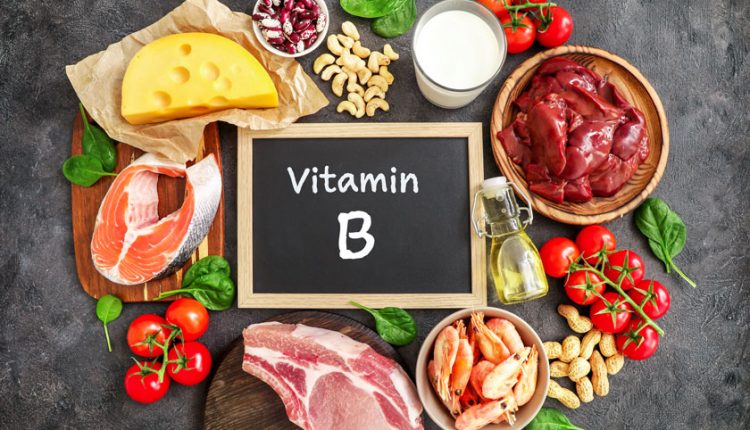
Would you believe me if I said consuming B vitamins to prevent Alzheimer’s can actually prove effective? Hold on! This is not a theory based on science fiction; we have evidence!
Many experts believe B vitamins can protect us against Alzheimer’s disease and, in general, the cognitive decline that comes with ageing. But how accurate is this belief? And what are the vitamins to prevent Alzheimer’s? Find out while reading the rest of this article.
Also, if you are interested in knowing about ways to prevent dementia, including B vitamins or not, we recommend watching the video below:
Contents
What Do We Know About B Vitamins?
B Vitamins are water-soluble, all with important roles in cell metabolism and the synthesis of red blood cells. These vitamins help enzymes do various tasks like transporting oxygen and energy around the body and breaking down fats and proteins, hence releasing energy. You can find these vitamins in your food, add them to food, or even take them directly in the form of supplements.
But what is B vitamins’ role in preventing dementia?
What B Vitamins Help Prevent Alzheimer’s Disease?
While All B vitamins are considered to be helpful, vitamins B12 and B6, and Folate, are particularly believed to be protective against cognitive decline.
Moreover, experts associate a particular group of B vitamins with mental deterioration. These vitamins are B1, B3, and B12. In other words, the links between these vitamins and the deterioration of the brain are more obvious.
Let’s have a quick review of each of these vitamins.
B1 (Thiamin)
Vitamin B1 is vital for the growth and function of many cells. Our body can only store a small amount of this vitamin in our liver, so we need to consume food rich in vitamin B1 on a daily basis. A deficiency in this vitamin can cause a syndrome called Wernicke-Korsakoff syndrome, which can damage the central and peripheral nervous systems. Memory loss and hallucinations are the key symptoms of this disease.
B3 (Niacin)
More than 400 enzymes in our bodies depend on vitamin B3 because it is a sort of coenzyme. This means that Vitamin B3 helps turn food into energy, create and repair DNA, create cholesterol and fats, and exert antioxidant effects. Like vitamin B1, a deficiency in vitamin b3 can cause a rare neurologic syndrome. This syndrome is called Pellagra, one of the symptoms of which is dementia.
B6 (Pyridoxine)
The active form of vitamin B6 is PLP, a coenzyme that helps more than 100 enzymes with different tasks. These tasks include breaking down fats, proteins, and carbohydrates and supporting immune function and brain health. A higher level of proteins is associated with a higher incidence of dementia, Alzheimer’s, and cognitive decline. So you can see how this vitamin is associated with a lower risk of dementia.
B12 (Cobalamin)
You can find vitamin B12 in animal foods. Of course, food is only a natural resource. Supplements of this vitamin are also available. We need vitamin b12 for forming red blood cells and DNA. In addition, this vitamin plays a vital role in the function and development of brain and nerve cells. Research shows that vitamin B12 reduces homocysteine blood levels, an amino acid that seems to be associated with a higher risk of cognitive decline and dementia.
A high-dose vitamin B12 therapy can resolve symptoms of the neurologic syndrome, including cognitive disturbances.
Please be careful! A deficiency in vitamin b12, in case untreated, is irreversible based on clinical studies.
In fact, vitamin deficiency is never good and can cause symptoms and issues that are sometimes serious. We advise all seniors to take the recommended amount of each vitamin for better health.
B9 (Folate, Folic Acid)
Folate is, in fact, the natural form of vitamin B9. Taking its supplements helps you absorb 85% of it while consuming it from food sources can only absorb 50%. Aside from helping form DNA and RNA, this vitamin is also involved in protein metabolism. Alongside vitamins B6 and B12, Folate also helps lower the homocysteine level.
Now that, more or less, we know about the most important group of B vitamins regarding dementia, let’s see how they can help us prevent it.

How Can B Vitamins Prevent Alzheimer’s?
If experts are honest with you, they will tell you that vitamins cannot actually “prevent” Alzheimer’s in that sense. It means there is no proof to show that people who do not lack B vitamins never develop Alzheimer’s disease. However, research keeps showing one thing: While none of the B vitamins are directly linked to Alzheimer’s disease, their deficiency can be linked to mental decline, particularly vitamin B12.
As we said, some studies show that high homocysteine levels can be related to developing Alzheimer’s disease. This topic is an interest for further research itself. Still, it gives base and support to the idea of associating a higher risk of Alzheimer’s with a deficiency in vitamin b12 and Folate.
Please notice that this route of study only suggests that the deficiency in these vitamins causes a higher level of homocysteine, hence a possibly more elevated risk for AD. There has been no evidence or study to suggest that an increased amount of these vitamins can decrease the risk of Alzheimer’s disease or cognitive decline.
Safe Doses of B Vitamins
Please notice that an overly high dose of these vitamins can cause disturbance and problems. For example, some clinical reports show that an excess amount of Folate is not safe and can have negative effects.
Do you think it’s hard for you to remember when to take your vitamin supplements and what is the right dose? Check out Living MAples’ awesome pill reminder, customizable for every user!
Final Words
There is no strong evidence to suggest that taking B vitamins can prevent dementia. Definitely, we need further research results to shed more light on this matter since even the present research cases may have issues that may lead to confusion and uncertainty. Right now, all we have in our hands is that a deficiency in B vitamins, particularly vitamin b12, can be linked to mental decline with an acceptable level of credibility.
But you should not forget that, when on the right dose, taking vitamins and supplements is always a good idea for seniors since there are some essential vitamins and minerals for boosting immunity and energy.
What are your thoughts on B vitamins to prevent Alzheimer’s disease? Do you think it will be possible someday to prevent this disease by consuming vitamins? How and in what way do you take your vitamins? Let us know in the comments.
When I learned about the link between B vitamins and brain health, I started taking a daily B complex supplement and encouraging my family members to do the same. While I know there’s no guarantee that B vitamins will prevent Alzheimer’s, it’s reassuring to know that we can do something to support our brain health.
I appreciate the article’s clear and accessible explanation of how B vitamins support brain health and reduce Alzheimer’s risk. I’ll discuss these findings with my doctor and consider whether a B vitamin supplement could be a beneficial addition to my health regimen. Thank you for shedding light on this critical topic!